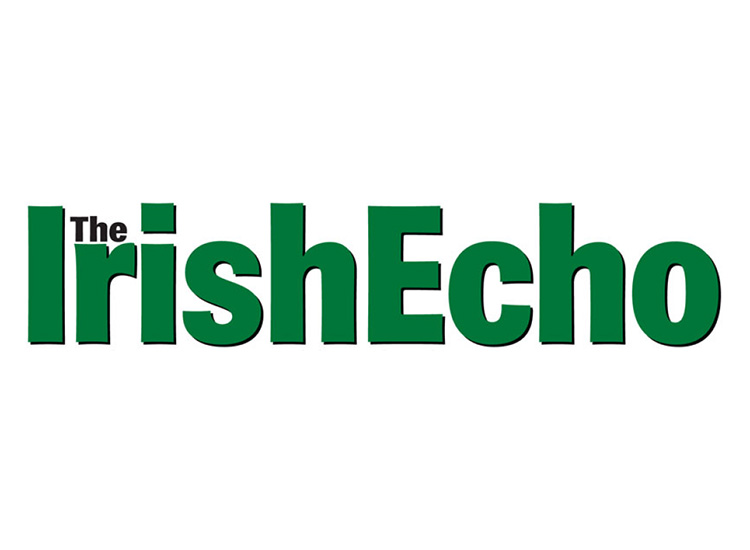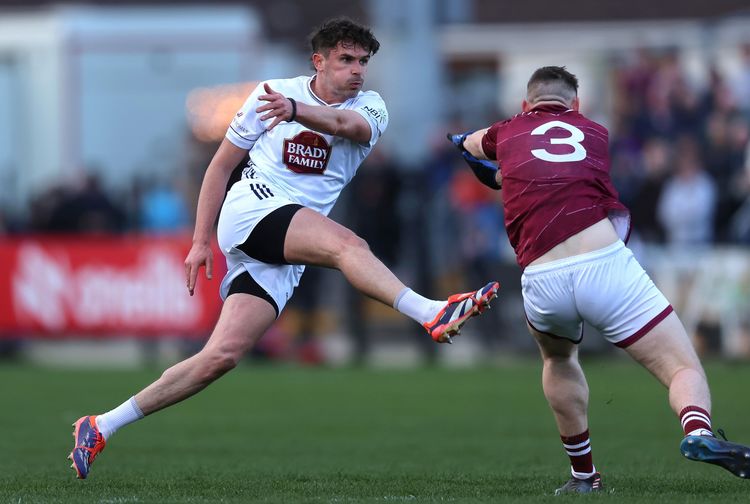The author with her daughter and artistic collaborator Aimée
By Aimee Alexander
I was staying with my pal, Molly, in New York. Molly is someone I really connect with and, when we’re together, we just chat away without thought.
At some point, I asked Molly to “give me that yoke.” What she gave me was a look. This look: “What are you talking about?” That’s when it hit me: though both speaking English, we were using two versions of the same language. I explained to Molly that, in Ireland, we say “yoke” when we’re too lazy to think of a word. It’s our version of “thingamajig.” And we use it a lot.
I started to think of all the Irish words and expressions that we use that might be thought of as colorful – or just plain confusing. B
ockety. Banjaxed. Craic… I decided to collect them. I loved this slow and casual process, just jotting things down as I heard or thought of them. Singling out our unique words and our own quirky way of using everyday words (like grand) gave me a greater appreciation of what it means to be Irish.
The way we use English (Hiberno-English) says so much about us as people, relaxed about some things, picky about others. I love that. I also love how many of our sayings come from the Irish language.
I had no great plan for my collection. It was really just for myself. Then one day I was sending out a newsletter to my readers (I’m a novelist who writes about Ireland) and, on a whim, I included an Irishism. The reaction was so great (many of my readers are of Irish descent) that I began to include an Irishism in every mailing. It occurred to me that there must be so many more people out there who would like a collection like this. And so began "The Little Book of Irishisms: Know the Irish through our Words."
Before I go on, let me explain bockety, banjaxed and craic – given that you may be wondering. Bockety means wobbly, rickety or unsteady. Here it is in a sentence: “No wonder that table’s bockety. Sure, isn’t one leg shorter?” Bockety is derived from the Irish word “bacach,” which means lame.
Banjaxed means broken beyond repair. It can also mean exhausted, shattered or hungover when referring to a person. Here it is in a sentence: “Well, you’ve just gone and banjaxed that now. ’Tis useless.”
Craic is so ubiquitous we forget that in other countries someone might well think we’re asking for drugs. Craic means fun or news depending on the context. “Any craic?” means any news? “What’s the craic?” means what’s up? “You’re no craic,” means you’re no fun. “That was gas craic,” means that was great fun.
As the book evolved, I began to think of ways it could come in handy. I included tricks to Irishify your conversation (even just for St. Patrick's Day), like putting “fierce” in front of a noun e.g. “He’s a fierce eejit (eejit = idiot).” For maximum effect, add “altogether” e.g. “He’s a fierce eejit, altogether.”
There is a fine line between speaking like a native and sounding like you’re trying to. So I included those clangers that many people think we say, but we never actually do, like the classic, “Top of the morning to you.” I added Irish language words to pepper your English with – as we do. For example, “I’m off to my leaba,” (pronounced la-ba) means I’m off to bed. I shared how to say hello like an Irish person and fit right in. I also explained what we actually mean when we tell you how we are. It’s not always clear.
My readers asked me to share the pronunciation of Irish names (e.g. Clodagh, Tadhgh, Caoilfhinn etc.) something that often baffles them when reading Irish novels. We have many words for rain for obvious – and depressing – reasons. We have a fair few for drunk as well. Insults are strong with us. The fact that we have fewer compliments in our arsenal probably says something about us. "The Little Book of Irishisms" wraps up by putting many of our Irishisms into practice in a short story. There is, of course, a glossary.
When I set out to publish "The Little Book of Irishisms," I wanted to spread cheer, craic and something of what it means to be Irish. I didn’t expect people to connect with it in the way that they have.
A few weeks ago, I started to send advance copies out to readers for their opinions. People with Irish ancestry, recognizing many of the sayings, were delighted to learn that they had been passed down through generations of their family.
They loved adding new ones to their vocabulary. Many people were reminded of late Irish relatives, like grandparents, and happy times that they shared. One reader in Florida is buying copies for Irish cousins she is planning to meet up with at the end of the year to spread the fun and the Irishness that they share. I write to connect. It really touches me that Irish families all over the world will do so through this book.
Many of my readers shared with me funny stories of language barriers when visiting Ireland. My favorite was from Pat in Pennsylvania who, on arriving in Dublin, nabbed a taxi. The driver was talkative. And baffling. Who, Pat wondered, was this “Janey” person he kept referring to? Too polite to ask, she hit Google the minute she got to her hotel and discovered that, rather than being a person, Janey (or Janey Mack) is an exclamation of surprise in Ireland.
A few of my advance readers suggested that I include fun illustrations to go with the text. This lead to something very magical. I thought of the quirky cartoons that my daughter, Aimée, has been drawing since she was tiny.
I asked her if she’d illustrate "The Little Book of Irishisms." Aimée lives in London now and is crazy busy being a corporate person.
I expected her to simply not have time. But I underestimated the person who, on a really difficult day for her personally, dressed as a fiery Irish rebel and posed for photos for the cover of my historical Irish novel, "Through the Barricades."
Aimée was game. Her illustrations silenced me. They were offbeat, funny and brilliant but best of all, her visual interpretation of some of our expressions was ingenious. With each illustration, the book became more and more personal to me. To collaborate with my daughter like this is something that I will treasure forever.
Finally, the cover. I am blessed with a wonderful designer, Rachel Lawston. The most patient of people, Rachel always understands what I’m trying to achieve. Rachel designed both the cover and interior and she blew me away.
On the cover, she could have gone for the obvious: shamrocks and harps and pints of Guinness. Instead, she captured what it means to be Irish through words which completely represents the book. I love the speech bubbles. “Leg it!” means run. “Sesh” stands for session – what we have when we hit a pub. A “dote” is a sweetheart.
If you’re coming to Ireland and want to fit right in, this book’s for you. If you can’t make it – and, hey, who can right now due to Covid – here’s a way of visiting in spirit.
“Go on, go on, go on. You will, you will, you will,” to borrow from the Irish comedy show, "Father Ted." Something we do a lot.
"The Little Book of Irishisms is available on Amazon and can also be ordered through bookshops and libraries. Those interested in an ebook taster can visit my website, www.aimeealexander.com.
Aimee Alexander is the pen name of best-selling Irish novelist and screenwriter, Denise Deegan.







